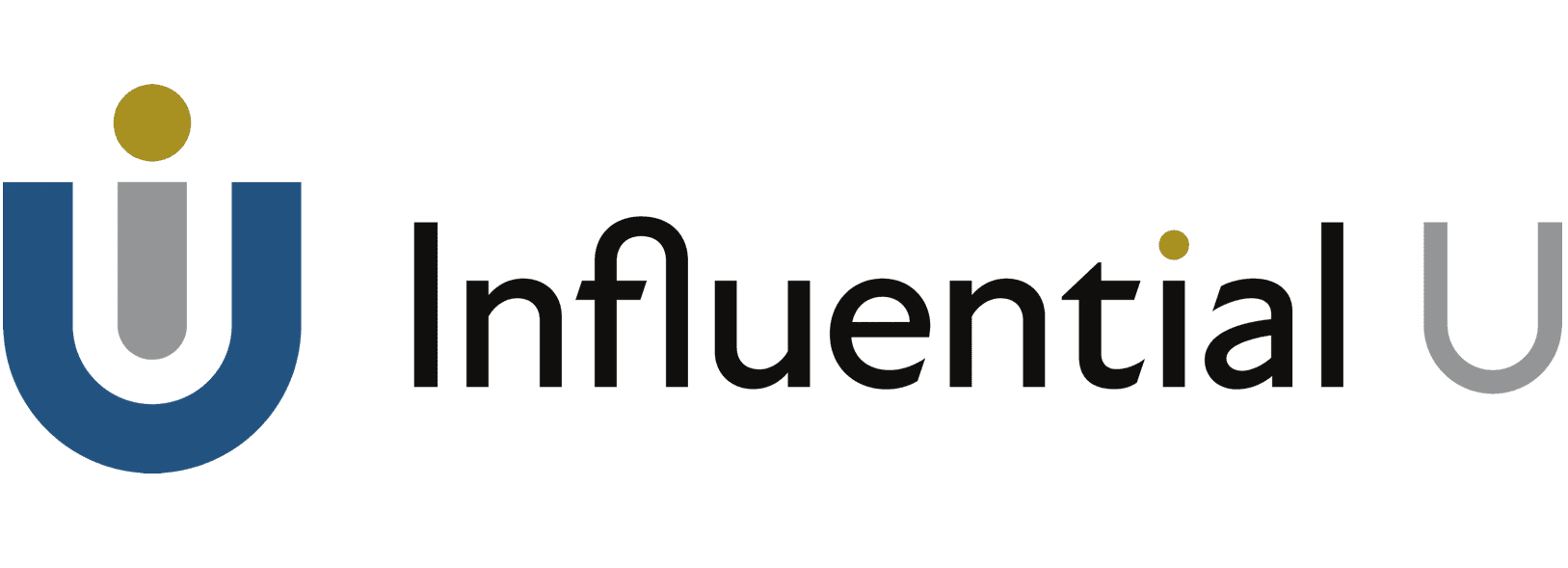Basic financial literacy begins with your ability to think accurately about money. This includes your ability to recognize, explain, and apply the fundamentals to your personal finance. So, why then, are we so crazy about money? Because we forget that money is merely a tool. Any other orientation is simply flawed.
“The price of anything is the amount of life you exchange for it.”
Henry David Thoreau
Money is a Tool
Money is the condition of our ability and capacity to function with others in meaningful economic exchange or transactions.
This orientation is expressed in the Influential U Primer on The Transactional Approach.
Money, like other concerns we have, is an inescapable and unavoidable condition that must be taken care of if we are going to live a satisfactory life. It, along with other conditions such as our health, our ability to work, and the state of our public identity (our career), determines our level of comfort and enjoyment in life.
Every adult seeking to live a good and comfortable life must confront these and other Conditions of Life™. Simply put, what we do with the limited time we have available, how we are known in our social circles, and our ability to make and save money are unavoidable conditions that must be taken care of over a long period of time.
These are but a few conditions that every adult must face as they go through life. When distinguished and observed carefully, it is easy to see that most people do not recognize or concern themselves with how to satisfy them objectively. Most people do not relate to these conditions as inescapable and important conditions until, of course, they find themselves in serious need of help—when, unfortunately, it’s too late to do anything about it.
Isn’t money a reward for loyalty or hard work?
It is common to hear people talk about their money and career as though they are some kind of subjective occurrence that will be magically taken care of if they just work hard, keep a good attitude, and do not rock the boat. It is highly uncommon to hear people talk about money in any context except how it is made. Few (those who know how to make it) relate to money as something that is objective and functional, not a mysterious happening. People who struggle with money, like those who struggle in other conditions, are most often blithely unaware of the condition at all.
What most people do not know and, therefore, cannot use to their advantage is that these important and inescapable domains are only satisfied through transactions with other people. In fact, transactions are the fundamental function through which all adults satisfy any Condition of Life. Although commonly defined as the exchange of an asset for payment, to consider this term philosophically broadens our understanding of the very nature of satisfying the fundamental conditions articulated here. Simply put, if we are to satisfy our most important Conditions of Life, we can do so only through transactions.
Even the most complex of transactions, involving millions of participants and spanning multiple years, begins with and is constructed on the fundamental mechanics and practices of reciprocal exchange. Whether we are transacting for a burger or transacting to take a burger franchise public, the essential elements required to fulfill these transactions are the same.
We acquire help by giving help
From a very early age, human beings learn that if we are to survive, and certainly live well, we must be able to get help. As infants, we first sought help from our parents and families; yet, it wasn’t long before we attempted to satisfy our individual needs and wants from a broader set of people. We are coded to survive within social environments; we cannot live good and comfortable lives without the help and cooperation of a great number of other people. Our capacity to coordinate action with others determines our competency to care for ourselves, our families, and the many important conditions we all seek to satisfy. It is rare, if not practically impossible, to live a good life without the ability to acquire good and valuable help. How we acquire that help is by giving help. This is fundamental—and this is called transacting.
Those who employ the fundamental mechanics and practices required to produce satisfying occupations of work, valuable professional identities, and acceptable incomes understand the fundamentals of transaction. When adults learn and can competently apply these fundamentals, they are not only able to produce satisfying conditions for work, money, and career, but are also able to satisfy many other Conditions of Life. Without the objective means to take care of them, all that is left is hoping, wishing, or good luck.
Are we that financially illiterate?
We simply cannot escape the unavoidable need to make and save money to live satisfying lives. This substantial breakdown is everywhere in evidence. The most recent statistical data available for household income and savings indicates that more than 75 percent of U.S. adults have little or no savings at all. The average American family has less than $3800 in savings and $2200 in credit card debt. As of July 2014, working Americans have an average retirement savings of less than $38,000. [1]
Similar statistics can be found in most developed countries.
A more disturbing predicament is that the culture in which we attempt to live and work does not support the fundamental mechanics and practices for ethically producing and saving money—in fact, the opposite is now the modern-day norm. Not only have we burdened ourselves with meager savings and credit card debt, but we also often purchase what we cannot afford and bet on the “maybe next year” future with student, car, and home loans, which sentences us to labor more than we desire and robs us of our health or our family life. Rather than think accurately—and transact effectively—we grow more naïve about the money we require to live a good and comfortable life.
Money is a tool
Money is a consequence of transaction. Any other orientation or activity that attempts to dilute our thinking about what money is and how it is produced is simply flawed. Money is a consequence of reciprocal exchange.
With very little exception, few adults can define and articulate the specific elements required to satisfy transactions for money. In other words, most people do not know what a transaction is or what a transaction looks like, and they certainly do not know how to construct them to meet their specific aims.
Money is a consequence of transaction. Money is produced (brought into existence) through the fulfillment of specific functions—functions that are objective, predictable, and measurable. As much as most people would like for this condition to be some other way, money is an objective function of transaction and simply cannot be produced by other means. With the proper orientation and understanding, it is easy to observe that people who struggle with money are not struggling with their intellect, skills, abilities, willingness to work hard, the level of their education, or the like, but rather, they struggle because they simply lack the competence to construct transactions that wholly satisfy their aims.
Our beliefs get in the way
It is easy to get lost in the complex, noisy, quick-fix narratives of our current culture. Our pop-culture media perpetuates long-held ideals and trendy pitches that attempt to convince us that money is a consequence of either our hard labor or our firm belief that our attitude, our persistence, our moxie, our psycho-spiritual or pseudoscientific universal connection, or our inherent goodness and worthiness can manifest money from some unseen cosmic force. What we hear and what we are taught is to work hard and/or be a good person and the money will follow. Unfortunately, this is simply not true.
While we accept the merits and virtue of hard work and recommend good moods and attitudes over bad ones, without the fundamental mechanics and practices in place, money will simply not get produced. Dignified behavior, persistence, and enthusiasm are certainly valid characteristics to embody, but good attitudes and work ethics without a valuable offer in which to apply them is wishful thinking—not transacting.
Applying enthusiasm and persistence toward weak or flawed offers in the marketplace will not make them work—it just makes a bad offer happen more enthusiastically, more often. We all know people who do not possess great intellect, do not work hard, run around in bad moods, and are difficult to get along with—yet when it comes to money they are doing extremely well. This is common to observe in practically every discourse where money changes hands. Why? Because money is a consequence of contractual work and action, regardless of our enthusiasm, hope, belief, personality, or ideology. It deserves repeating—money is a consequence of transaction and cannot be produced any other way. And the same applies to our health, career, and activity.
What we teach and how we teach it is not intended to produce moods and feelings of hope, motivation, and excitement. We do not subscribe to nor do we accept that people can produce satisfying Conditions of Life for their activity, career, and money purely from the popular and arbitrary notions of subjective constructs, fantasies, or ontological affirmations. While all of these may be valid ways for some people to live their lives, they won’t bring into existence the conditions we seek.
On the contrary, we teach that adults who intend to live good and satisfying lives must confront the constraints of an indifferent society, especially when it comes to making money. The marketplace, where money is made, is a purely economic environment driven by value exchange. The marketplace is indifferent to our personal needs and wants and any other orientation is naïve.
This study orients participants toward a fundamental understanding that human beings are social organisms ultimately unable to survive in isolation. We need help. Those individuals who understand how to seek, accept, and offer help within our dynamic and complex social structure tend to live satisfying and comfortable lives. This orientation rests on a foundational and fundamental understanding that human beings are biological, linguistic, and transactional.
The nature and power of environment, especially the environment of the marketplace, is not offered here in theory alone. Rather, we produce a rigorous learning environment whereby participants come face-to-face with the states of mind, behaviors, moods, and naivety that have kept them from objectively satisfying their Conditions of Life for activity, career, and money. This competence is developed in the social environment of an ambitious peer group comprised of ambitious and accomplished business and creative professionals from around the world.
Bolstered confidence isn’t competence
Rather than empower participants with false confidence through high concept motivation and excitement, we instead offer the deliberate practice of consequential transactions. While many participants find the work of our programs motivating, they are not intended to be motivational. We produce a rigorous study and ambitious environment. Our study offers participants a tangible real-world opportunity to develop practical and recurrent transactional competence: the ability to successfully and efficiently transact to satisfy many Conditions of Life.
The well-documented failure of the enthusiasm and empowerment movements that have dominated Western thinking over the past generation has come home to roost. Baby boomers in the U.S. are living with the consequences of the flawed and broken promises made by the positive mental attitude movement. More recently, the mysterious “secrets” to success have produced a social ethic of entitlement and superstition. We live in a society of positive thinkers who are highly enthusiastic and confident but hold no real competence or skill to satisfy the objective Conditions of Life that confront them each day.
The theory of self-esteem was a well-intentioned attempt to use psychology for the public good . . . all this enthusiasm led to a new approach to child-rearing imparted by psychologists, teachers, journalists, and artists . . . a novel but irresistible idea to the millions who began trying to improve children’s academic skills by encouraging them to think positively—to declare I’m really good at things. [2]
These and other movements of the sort have produced generations of well-meaning, well-intended, and unfortunately, incompetent individuals: a society of entitled individuals who expect satisfying work, respected identities, and higher paychecks as a rite of passage into adulthood rather than well-educated, transactionally competent adults ethically transacting with valuable offers of help through reciprocal exchange. The “live for the moment” generation now facing retirement did not concern itself with increasing the value of their help, but rather concerned itself with the desire to live, as it wanted. Most adults today continue to bet that the future will be better; they truly believe that somehow the debt will get paid and life will simply turn out—but that bet has already been lost.
“If it’s to be, it’s up to me”
The self-help mottos of “If it’s to be, it’s up to me” have seduced Western culture into a state of wishful and magical thinking. This self-actional approach has been a profoundly “trans-actional” mistake costing multiple generations the reality of living satisfying lives. Modern approaches to making “the individual” the source and cause of one’s happiness, without recognizing the proper and ethical behavior required to live and work with others, ignore the ecosystems in which we are naturally a part and render us an observer with god-like powers to overlord the environments in which we exist. Worse, this and other fantasies perpetuate systems of belief that tell us we can somehow control and influence everything from parking places to world economies through nothing more than our firm convictions, will, and desire.
This is true not only for the condition of money, as one need only look at the state of our general health. Mostly what we see is the same situation: the majority of people are fat and unhealthy and are betting their very physical existence on a notion that one day it will all work out. They fail to act until something bad happens to wake them up and get their attention. Is it possible that we as a culture have been terribly wrong about what we are entitled to and deserve?
The transactional approach to satisfying our Conditions of Life is one that asserts “the right to see together . . . much that is talked about conventionally as if it were composed of irreconcilable separates”.3 We are an organism in an environment. We are not separate from, nor can we overlord or dismiss, our mutually constitutive existence within our social and physical environments. We are, as Adam Smith declared, the “exchange animal” and we either transact competently to live good and comfortable lives—or transact naively in hopes that the marketplace, government, or the tooth fairy will somehow value our good intentions and reward us for our good works.
Those who transact powerfully, thrive
There is no question that adults must transact to survive in our current marketplace. The question to answer is whether you are able to transact effectively and powerfully: nothing more, nothing less. People either know how to construct transactions that produce money, career identities, enjoyable work situations, and good health—or they do not.
To satisfy our most important Conditions of Life, we must transact. The good news is that every human being is already transacting and knows, fundamentally, that we cannot expect to make a very good life for ourselves without the help of others and the willingness to help in exchange. The better news is that we can learn, with some specific study and practice, how to transact effectively and powerfully. Our programs offer help in the study and practice of transactional competence. If you are interested and would like to know more, please contact us, or simply apply for admission.
Influence Ecology Programs and Offers The Transactional Approach © Influence Ecology, LLC, Kirkland Tibbels & John Patterson

AUTHOR
John Patterson
Co-founder and CEO
INFLUENTIAL U
John Patterson co-founded and manages the faculty and consultants of Influential U global. Since 1987, he has led workshops, programs, and conferences for over 100k people in diverse professions, industries, and cultures. His history includes corporate curriculum design focusing on business ecosystems, influence, leadership, and high-performance training and development.
[1] Source: Federal Reserve, United States Census Bureau, Internal Revenue Service.
[2] Roy F. Baumeister & John Tierney, Willpower: Rediscovering the Greatest Human Strength, p. 188-189.
[3] John Dewey and Arthur F. Bentley, Knowing and the Known, p. 69. Influence Ecology is an invitation-only member curriculum. To apply for admission, please complete our online application. For additional questions or for a virtual presentation, please contact us.



